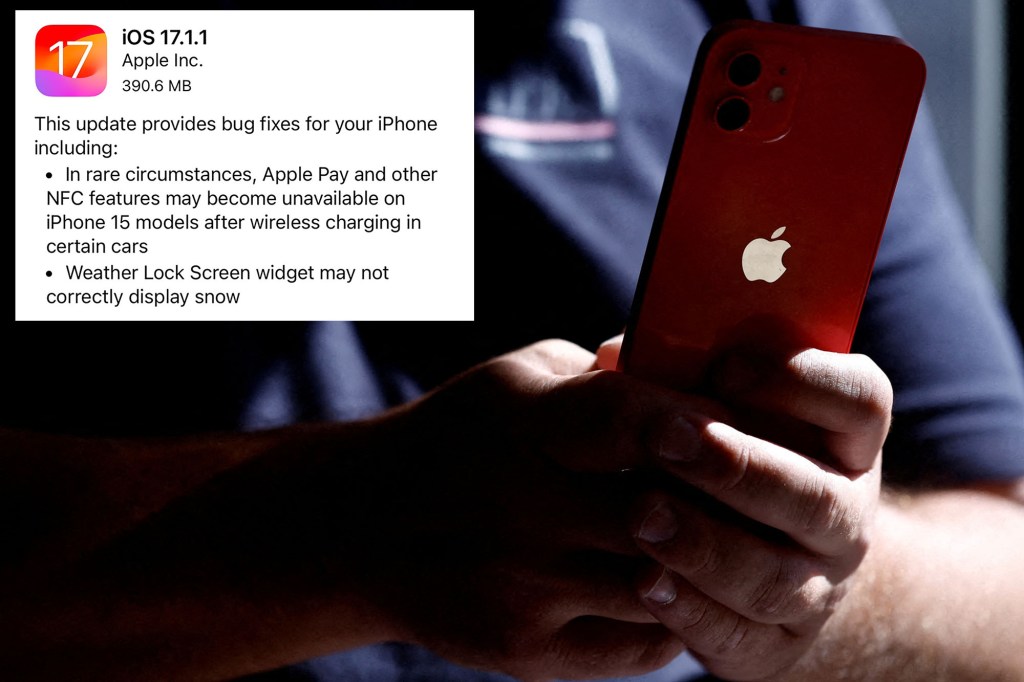Apple issues urgent iPhone update — how and why to install it
Maybe the new titanium iPhone isn’t as solid as it seems.
Apple recently released a critical update for iPhone 15s — the tech giant’s latest smartphone — following reports of bugs linked to virtual payments and car-related uses.
Specifically, several BMW owners said near field communication (NFC) features like Apple Pay broke when their iPhone 15, iPhone 15 Plus, iPhone 15 Pro or iPhone 15 Pro Max was wirelessly charged in their vehicle, the Verge reported.
Virtual keys for the German car brand — which acknowledged the problem last month — also failed. Other reports say Toyota Supra owners were affected as well.
Apple’s solution is update 17.1.1, which “provides bug fixes” to problems with wireless charging in certain cars and a weather icon lock screen glitch.

Installing the fix is simple enough — users can just go to their settings and find the “software update” tab while their phone is connected to a power source and WiFi.
Automatic updates can be turned on as well.
Bug fixes for Apple products have become so crucial that the company is holding off on developing new software updates for next year to fix code glitches on current devices, according to Bloomberg.

The Post reached out to Apple for comment.
The titanium iPhone 15 Pro and Pro Max have also come under fire for uncomfortably overheating during usage. In an Apple forum, one customer said their device was “too hot to hold.”
Apple analyst Ming-Chi Kuo warned this phenomenon is likely connected to design “compromises” to reduce the phone’s weight.
“The primary cause is more likely the compromises made in the thermal system design to achieve a lighter weight, such as the reduced heat dissipation area and the use of a titanium frame, which negatively impacts thermal efficiency,” Kuo wrote in September on Medium.
“If Apple does not properly address this issue, it could negatively impact shipments over the product life cycle of the iPhone 15 Pro series.”
Apple blamed software and app-related bugs for the problem, not its titanium frame.







